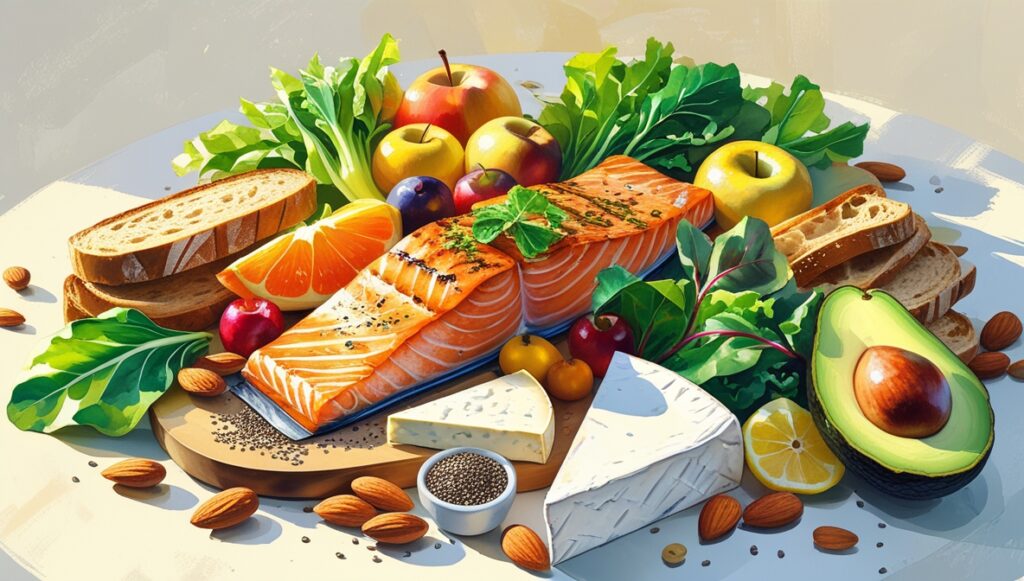Nutrition plays a fundamental role in the recovery process for critically ill patients. When the body is fighting a severe illness, injury, or undergoing major surgery, its nutritional needs increase significantly. Without adequate nutrition, the body may struggle to heal, leading to prolonged hospital stays, complications, and even increased mortality risks.
Critical illness often results in high metabolic stress, where the body rapidly burns through stored nutrients. This can lead to severe malnutrition if proper nutritional support is not provided. In this article, we will explore how nutrition impacts recovery, the essential nutrients required, and the best ways to ensure optimal nutritional care for critically ill patients.
Understanding Critical Illness and Its Impact on the Body
What is Critical Illness?
Critical illness refers to life-threatening medical conditions that require intensive medical intervention. These may include severe infections, sepsis, organ failure, trauma, major surgery, or prolonged hospitalization.
Common Conditions Leading to Critical Illness:
Sepsis and severe infections
Respiratory failure
Major surgeries (e.g., heart surgery, transplants)
Multi-organ dysfunction syndrome (MODS)
Severe burns or trauma
Cancer treatment complications
The Body’s Metabolic Response to Illness
When the body undergoes extreme stress from illness or injury, it triggers a hypermetabolic state. This increases energy expenditure, leading to rapid muscle breakdown, loss of fat stores, and depletion of essential nutrients. Patients in critical care often experience inflammation, weakened immunity, and difficulty digesting or absorbing nutrients.
The Importance of Proper Nutrition in Critical Care
Nutrition in Recovery During Critical Illness is not just about providing calories; it’s about delivering the right balance of macronutrients (proteins, fats, carbohydrates) and micronutrients (vitamins and minerals) to support healing and recovery.
Key Roles of Nutrition in Critical Care:
Supports immune function – Proper nutrition strengthens the body’s defense against infections.
Aids in tissue repair – Protein and essential nutrients promote wound healing.
Maintains muscle mass – Prevents excessive muscle loss due to catabolism.
Reduces inflammation – Certain nutrients help control excessive inflammatory responses.
Optimizes organ function – Ensures adequate energy for the heart, lungs, kidneys, and brain.
Effects of Malnutrition in Critically Ill Patients
Malnutrition is common in critically ill patients and can worsen outcomes if not addressed properly.
Consequences of Malnutrition:
Weakened immune system – Increased risk of infections.
Delayed wound healing – Poor tissue regeneration.
Muscle loss and weakness – Leads to prolonged recovery time.
Increased hospital stay – Higher healthcare costs.
Higher risk of complications – Such as pressure ulcers and organ dysfunction.

Nutritional Assessment in Critical Care
Proper nutritional assessment is crucial to developing an individualized nutrition plan.
Methods of Nutritional Assessment:
Body weight and BMI measurement
Muscle mass evaluation
Blood tests (albumin, prealbumin, electrolytes, etc.)
Indirect calorimetry to assess energy needs
Types of Nutritional Support in Critical Illness
Patients unable to eat normally require specialized nutritional support:
1. Enteral Nutrition (Tube Feeding)
Administered through a tube directly into the stomach or intestines.
Preferred over intravenous feeding as it supports gut function.
2. Parenteral Nutrition (Intravenous Feeding)
Used when enteral feeding is not possible.
Nutrients are delivered directly into the bloodstream.
Choosing the right method depends on the patient’s medical condition and ability to digest food.
The Role of Protein in Recovery
Protein is crucial in preventing muscle loss and supporting immune function.
Recommended Protein Intake:
1.2–2.0 g/kg of body weight for critically ill patients.
Sources: Lean meats, eggs, dairy, legumes, and high-quality protein supplements.
The Role of Carbohydrates and Fats in Energy Supply
Carbohydrates provide quick energy, while fats serve as a long-term fuel source.
Best Sources:
Carbohydrates: Whole grains, fruits, and vegetables.
Fats: Healthy fats from nuts, seeds, olive oil, and fish oil.
Balancing these macronutrients prevents complications like hyperglycemia or excessive fat accumulation.
Key Micronutrients Essential for Recovery
Critical illness increases the demand for vitamins and minerals.
Vitamin C and Zinc: Essential for wound healing.
Vitamin D: Supports immune function.
Iron and Magnesium: Crucial for oxygen transport and energy production.
Hydration and Its Impact on Recovery
Maintaining proper hydration is as important as providing nutrients.
Risks of Dehydration:
Kidney dysfunction
Electrolyte imbalances
Impaired circulation
IV fluids and oral hydration are essential in managing fluid balance.
Challenges in Providing Nutrition to Critically Ill Patients
Providing adequate nutrition to critically ill patients comes with several challenges. These patients often experience complications that affect their ability to eat and absorb nutrients properly.
1. Digestive Complications
Many critically ill patients suffer from gastrointestinal (GI) issues, such as:
Gastroparesis (delayed stomach emptying) – Common in patients on mechanical ventilation.
Intestinal inflammation – Can impair nutrient absorption.
Diarrhea or constipation – Side effects of medications and feeding formulas.
In such cases, healthcare providers must carefully adjust nutritional support to avoid further complications.
2. Feeding Intolerance
Some patients experience bloating, nausea, or vomiting when receiving enteral nutrition.
Adjusting feeding rates and formulas can help improve tolerance.
In severe cases, switching to parenteral nutrition may be necessary.
3. Ethical Considerations
End-of-life care – Deciding when to start or withdraw nutrition can be difficult.
Patient autonomy – Some critically ill patients may have advance directives refusing artificial nutrition.
Family involvement – Families must be included in discussions about nutritional interventions.
These challenges require a collaborative approach involving doctors, dietitians, and caregivers to make the best decisions for the patient’s health.

The Role of Healthcare Professionals in Nutritional Management
Nutritional care in critically ill patients is a multidisciplinary effort involving:
1. Dietitians and Nutritionists
Assess nutritional needs and develop individualized meal plans.
Monitor patient progress and adjust feeding regimens.
2. Doctors and Nurses
Prescribe and administer enteral or parenteral nutrition.
Manage complications such as feeding intolerance and metabolic imbalances.
3. Caregivers and Family Members
Play a key role in long-term nutritional support after hospital discharge.
Ensure patients receive adequate nutrition at home.
With proper coordination, healthcare teams can optimize nutrition and improve recovery outcomes.
Future of Nutrition in Critical Care
The field of clinical nutrition is continuously evolving, with new research and innovations improving patient outcomes.
1. Personalized Nutrition Plans
Advances in genetics and metabolism research allow for tailored nutrition plans based on an individual’s biological needs.
Personalized meal formulations can enhance recovery and reduce complications.
2. Artificial Intelligence (AI) in Nutritional Assessment
AI tools are being developed to predict patient nutritional needs based on real-time data.
Machine learning models help healthcare providers optimize feeding strategies for critically ill patients.
3. Emerging Nutritional Therapies
Immunonutrition – Specific nutrients (such as omega-3 fatty acids, arginine, and glutamine) help modulate immune responses.
Probiotics and prebiotics – Support gut health and reduce infection risks.
Novel protein sources – Plant-based and lab-grown proteins are being explored for critically ill patients with dietary restrictions.
These advancements hold promise in making nutrition a more precise and effective tool in critical care.
Conclusion
Nutrition plays a vital role in the recovery of critically ill patients. It supports immune function, prevents muscle loss, promotes wound healing, and enhances overall recovery. Without proper nutrition, patients are at a higher risk of infections, complications, and prolonged hospital stays.
Healthcare providers must carefully assess each patient’s nutritional needs and choose the best feeding method—whether enteral or parenteral—to ensure optimal outcomes. While challenges exist in delivering nutrition, advances in research and technology are paving the way for better, more personalized nutritional care in critical care settings.
By recognizing the importance of nutrition in critical illness, healthcare teams and caregivers can work together to improve survival rates, enhance recovery, and ultimately give patients a better quality of life.
Author- Dr. Utkarsh Shah





